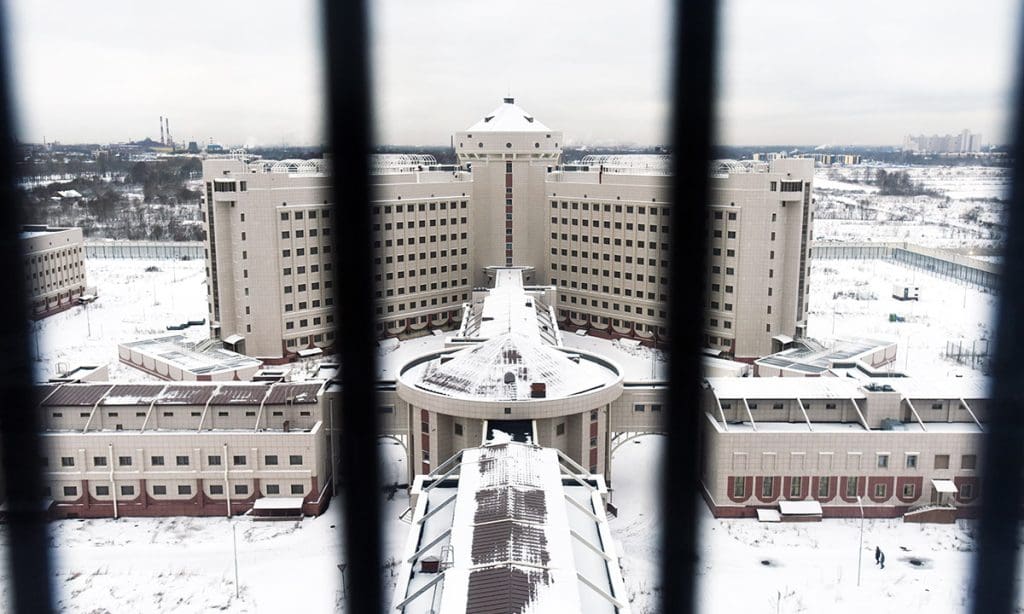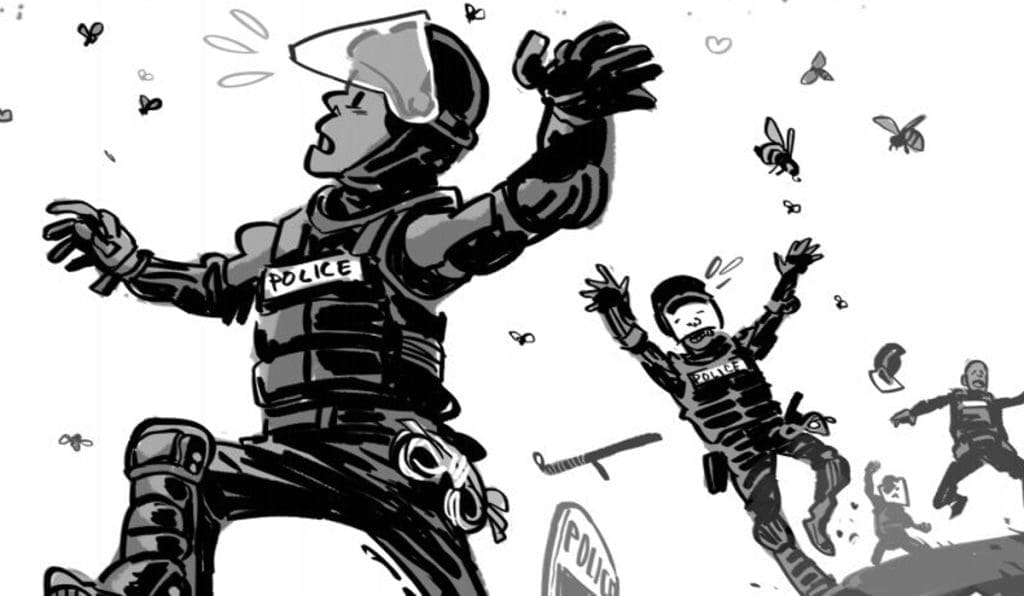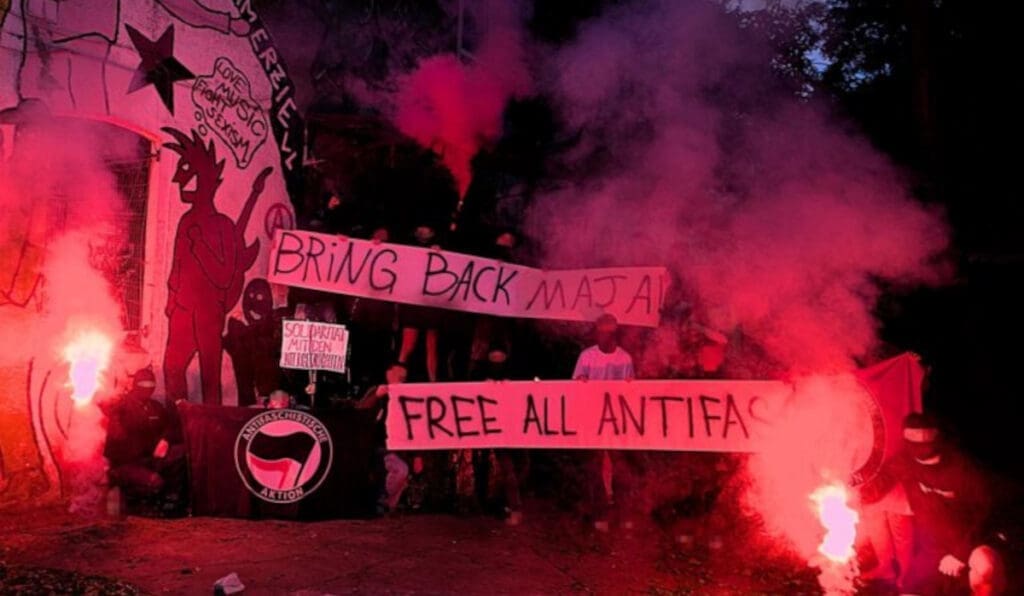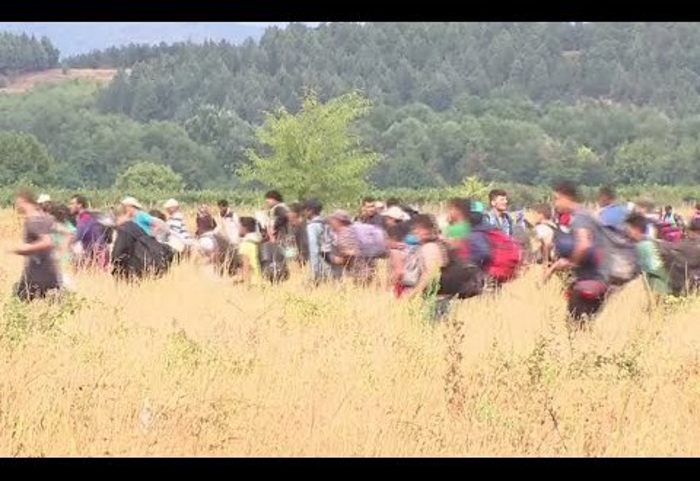Wonderland
by Yana Teplitskaya (original post in Russian)
translated by the Russian Reader (original post in English)
4 September 2018
Emotions are weird. I write “hogtie,” “taser,” and “Liteiny 4” [FSB headquarters in Petersburg] without feeling anything.
I wrote “interrogation in the middle of the night” and the tips of my fingers went numb.
I don’t understand what remains when you’ve run out of hatred, and fear has faded.
Navigating your way through fear gives you a lot of strength, but it doesn’t last long.
Love and solidarity.
However, their supply is probably limited, too, since I feel so little strength.
***
“I have the sense we live so well that we should [help others].”
“But I know now this sense doesn’t get you far. My human rights work started from an overabundance of well-being, but I think it has been spent, that it has bottomed out.”
“Oh! So, no matter how much I do for the kids, I’m giving them a finite, rather than an indefinite, supply?”
***
As for basic trust in the world, I have the general sense that if you really have to do it, you will do anything. The deaths of other people and one’s own ailments take away that feeling. Just like the torture of Igor.
***
“Officials who are directly accused of torture: […] born 1993.”
🙁
***
Excerpts from a funny [and seemingly really lousy] interview about “why you do what you do.”
*
“Would you like to be written up in the history books?”
“Uh, well, I’d like these cases to be written up in the history books. That would mean this nightmare had ended [and a new one had begun].”
*
“I have generally always been interested in the human rights movement and the struggle for the rule of law in Russia. I read a good number of autobiographies [of human rights activists and dissidents] while I was at school.”
“And your interests didn’t look odd to the people at school?”
“No, I think everyone else was also into something ‘odd.’”
*
“But why this way? After all, you could save people by being a surgeon.”
“Because it’s simple: while being a surgeon is really complicated, what we do is really simple. You simply show up somewhere and write down everything as it happened. Anyone could do it.”
***
I remember thinking while I was at school that it was fortunate I was finishing school during a period of authoritarianism. Under democracy or totalitarianism, I would have found it too messy to advocate human rights. I wouldn’t have even given it a thought, for different reasons: it’s too messy in a democracy, while it’s too dangerous under totalitarianism. So, if I had finished school in 2018, I would hardly have taken up human rights advocacy.
***
I see the circumstances in both Russia and Petersburg completely differently from the way I saw them ten years ago. Roughly speaking, ten years ago, the prisons were a topsy-turvy world, a “wonderland,” while the outside world was almost normal. In these circumstances, it made sense to rupture the impervious world of prisons, because doing so would in itself improve conditions in prisons. Rupturing this impervious world was simple. It was enough to hang around, both inside and outside, and flap your gums. In the outside world, you would jabber about what was happening on the inside, and vice versa.
I no longer see things this way. With its aggressive propaganda, wars, and insane laws, the outside world is about the same as the topsy-turvy world, as “wonderland.” Therefore, my goals and methods have changed a bit.
Nowadays, perhaps, the role of the outside world is played by hypothetical readers of our reports “from the normal world,” meaning decent people on the internet and on the street, future readers, the UN Committee against Torture. Due to the need to navigate temporal and geographical borders, everything has become a little stricter. It has become vital to accurately record what is happening.
Note from the Russian Reader: Yana Teplitskaya is a member of the Petersburg Public Commission for Monitoring Conditions in Places of Incarceration (“Petersburg Public Monitoring Commission” or “PMC”). Ms. Teplitskaya and her fellow PMC member Yekaterina Kosarevskaya were instrumental in uncovering and publicizing the torture by the FSB of the suspects the security agency abducted as part of its alleged investigation of the so-called Network Case, a.k.a. the Penza-Petersburg “terrorism” case. Photo and translation by the Russian Reader, with thanks to Ms. Teplitskaya for her permission to publish her remarks.
And from us at Antidote: The Russian Reader has diligently compiled a wealth of further information on the topics alluded to in these reflections, including a detailed interview with Yana Teplitskaya and Yekaterina Kosarevskaya that gives a fuller impression of them and their inconceivably courageous work with the PMC. At the foot of that post (here’s the link again) is yet a further list of illuminating articles—which, extensive as it is, was only complete at the time it appeared, 23 April 2018. For the most up-to-date listing of the Russian Reader‘s articles on the FSB torture of Penza antifascists, check out their most recent article on the topic—which at the moment is this one, but that is bound to change soon enough, so just hop on over to their home page, person from the future, and drink it in.
Featured image: the New Crosses Remand Prison, via the Russian Reader





